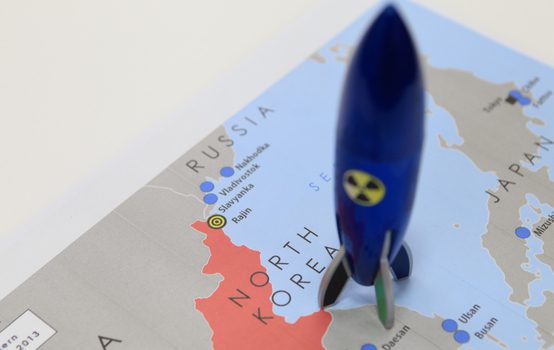Why the U.S. Fails to Understand Its Adversaries

Robert Jervis and Mira Rapp-Hooper warn about the dangers that come from misperception on both sides of the standoff with North Korea:
If any U.S. strategy toward North Korea is to have a chance of succeeding (or even of just averting catastrophe), it must be guided by an accurate sense of how Kim’s regime thinks, what it values, and how it judges its options. Washington must understand not just North Korean objectives but also how North Korean officials understand U.S. objectives and whether they consider U.S. statements credible.
Unfortunately, the U.S. is remarkably bad at understanding these things accurately. This is not just a Trump administration failing. Most American politicians and policymakers routinely misjudge the intentions and goals of our adversaries, and they often invent a fantasy version of the regime in question that leads them astray again and again. One reason for this is that it is simply easier to project our assumptions about what a regime must want than it is to make the effort to see things as they do. Another reason is that many of our politicians and policymakers mistakenly think that if they try to understand an adversary’s views that must somehow mean that they sympathize with the adversary or condone its behavior. Instead of trying to know their enemy, our leaders would prefer not to for fear of being “tainted” by the experience. This lack of knowledge is compounded in some cases by the absence of normal diplomatic relations with the adversary. Our leaders are encouraged to take this self-defeating approach to international problems by a political culture that rewards the people that strike tough-sounding-but-ignorant poses about a problem and marginalizes those that seek to understand it as fully as possible.
The first step in correcting these failings is to accept that some of these regimes regard the U.S. as an “existential threat” and therefore view all U.S. actions with at least much suspicion and fear as our government views theirs. The next step would be to recognize that the main goal of any regime is its own preservation. We should be very wary of any explanation of their actions that claims that an adversary is irrationally suicidal. Another step would be to acknowledge that regime behavior that we regard as purely aggressive is very often the result of the adversary’s belief that it needs to deter our aggression against them. Our politicians often talk about North Korea threatening the entire world with its nuclear weapons, but this misses that in their relative isolation and paranoia the North Korean regime sees the rest of the world, and especially the U.S., as a threat that needs to be defended against. Recognizing these things doesn’t make their acquisition of nuclear weapons desirable and it doesn’t mean that we approve of it, but it does make it understandable.
Our government’s frequent inability to understand how an adversary thinks and what an adversary wants is usually bound up with our government’s overestimation of its own power and a denial of the other state’s agency. If many of our policymakers invent a fantasy version of the regime to serve as a foil, they come up with unrealistic demands that they think the U.S. can force the adversary to accept. Because we fail to understand what the adversary is trying to do, we make demands that we ought to know will never be accepted. Because our government fails to take the other side’s agency into account, our policies are often crafted solely to punish and compel and rarely to give them an incentive to cooperate or compromise. We then claim to be surprised when this approach yields only intransigence and more of the behavior that we want the other state to stop.